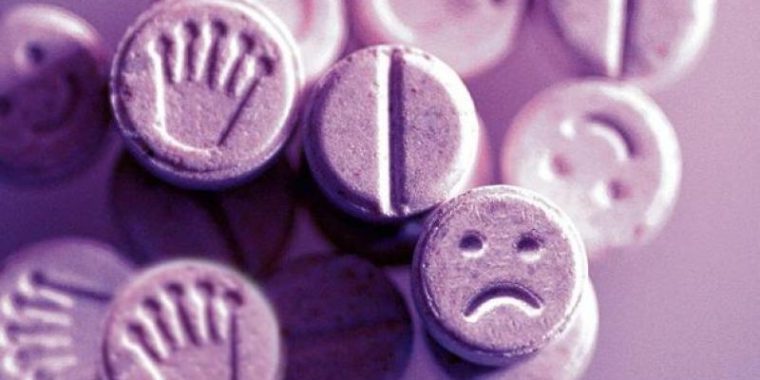At first, MDMA provides a surge of happiness. However, after a day or two, and up to three weeks later, users may experience mood swings and feelings of low mood. Although it was initially believed to have only short-term effects, studies have shown that even individuals who have stopped taking MDMA have higher depression scores compared to non-users.
The precise impact of MDMA on the body and mood is not yet fully understood. Reactions to MDMA usage vary depending on factors such as
- dose taken
- type of MDMA used
- sex
- if there’s a history of depression
- other drugs are taken in addition to MDMA
- genetics
- other individual characteristics
MDMA can alter serotonin levels in the brain, which can influence mood, feelings, and thoughts. Research has shown that individuals who have heavily used MDMA in the past have elevated rates of depression, impaired memory, and poor sleep quality even after abstaining from MDMA use for extended periods. Temporary or long-lasting drops in serotonin levels following MDMA usage have been linked to depression or suicidal thoughts, but the extent and duration of these effects can vary among individuals.
From Euphoria to Despair: MDMA, Depression, and Anxiety
MDMA, commonly known as ecstasy or molly, gained popularity as a “club drug” in the 1980s and 1990s. According to a 2017 report by the National Institute on Drug Abuse (NIDA), over 18 million people reported trying MDMA at least once.
A study revealed that even a few tablets of ecstasy, often referred to as the “love drug” and frequently used by hundreds of thousands of individuals every weekend, can lead to severe depression. The drug-induced changes in the brain have lasting effects on mental health, including issues like memory loss and difficulty concentrating. Despite this, many young people still perceive MDMA as harmless.
Psychologists have discovered that even individuals who stopped using the drug several years ago scored higher on depression ratings than those who never used it.
While MDMA has been around for a while, there is still much we don’t know. Conflicting data exist regarding whether it causes depression and anxiety or potentially aids individuals with these conditions. The answer is not straightforward.
What Does MDMA Do to Your Brain?
MDMA, scientifically known as methylenedioxymethamphetamine, possesses both stimulant and hallucinogenic properties. It shares similarities with amphetamines in terms of its stimulant effects, while also exhibiting some hallucinogenic traits akin to mescaline or peyote.
Theoretically, these effects shouldn’t be long-lasting, but studies have shown that even individuals who have ceased MDMA usage still display higher depression scores compared to non-users. It’s worth noting that MDMA is often used in combination with other drugs, which can amplify these detrimental effects.
In the brain, MDMA exerts its influence by affecting and increasing the levels of three key neurotransmitters: serotonin, dopamine, and norepinephrine.
- Serotonin plays a crucial role in regulating mood, behavior, thoughts, sleep, and various bodily functions.
- Dopamine impacts mood, movement, and energy levels.
- Norepinephrine influences heart rate and blood pressure.
MDMA typically takes effect within 45 minutes after consumption, with the duration of effects lasting up to six hours, depending on the dosage.
Does MDMA cause anxiety?
The use of MDMA can induce anxiety, even after a single dose. However, the severity and duration of anxiety can vary among individuals and depend on factors such as drug dosage, frequency of use, and any pre-existing history of anxiety, depression, or panic attacks.
Side Effects of MDMA
According to NIDA, some reported side effects of MDMA include:
- Unclear thoughts
- High blood pressure
- Jaw clenching
- Restless legs
- Loss of appetite
- Nausea
- Sweating
- Chills
- Hot flashes
- Headaches
- Muscle stiffness
- Problems with depth and spatial awareness (this can be dangerous when driving after using MDMA)
- Depression, anxiety, irritability, and hostility (after use)
What are the risks of taking MDMA?
When it comes to taking MDMA, it’s crucial to be aware of the potential risks involved. Due to the prevalence of MDMA being mixed with other drugs on the street, fully understanding its complete impact can be challenging. Here are some of the most significant risks associated with MDMA usage:
Addiction Potential
While the extent of MDMA’s addictive properties is still not entirely understood, research suggests that MDMA affects the brain in ways similar to other addictive substances. This indicates a likelihood of MDMA being addictive.
Mixing with Other Drugs
A primary safety concern with MDMA is its frequent adulteration with other designer drugs or novel psychoactive substances (NPS), such as amphetamines. The contents of MDMA purchased on the street can be unpredictable and potentially dangerous.
Long-Term Effects on Brain Chemistry
MDMA usage over an extended period may result in long-term changes in brain chemistry. Serotonin levels in the brain can be impacted, potentially leading to anxiety. It is important to note that even a single use of MDMA can trigger anxiety, although persistent anxiety is rare.
Overdose Risk
Consuming excessive amounts of MDMA can lead to an overdose, characterized by a sudden increase in heart rate and body temperature. This becomes particularly dangerous in overheated environments like crowded venues or concerts. If you suspect an MDMA overdose, it is crucial to call 911 immediately.
Depression Treatment
It is crucial to avoid self-treating depression or any other condition with MDMA or other designer drugs, as these substances are not regulated. You need to look for professional treatment centers specializing in depression and anxiety . s.
When you buy MDMA, it is often mixed with other substances, including:
- Amphetamine
- Methamphetamine
- Cocaine
- Ketamine
- Aspirin.
These combinations can produce various reactions, and it is often impossible to determine the exact composition and concentration of the substances.
Bottom Line
In conclusion, depression and substance use disorders often coexist, with each potentially contributing to the other. Seeking dual diagnosis treatment that addresses both conditions simultaneously is considered the gold standard. Treatment options may include medication, therapy, support groups, or a combination of these approaches. Professional support significantly improves the symptoms of depression and substance use disorders. When you feel ready, consider reaching out for help.
Remember, recovery is possible.




